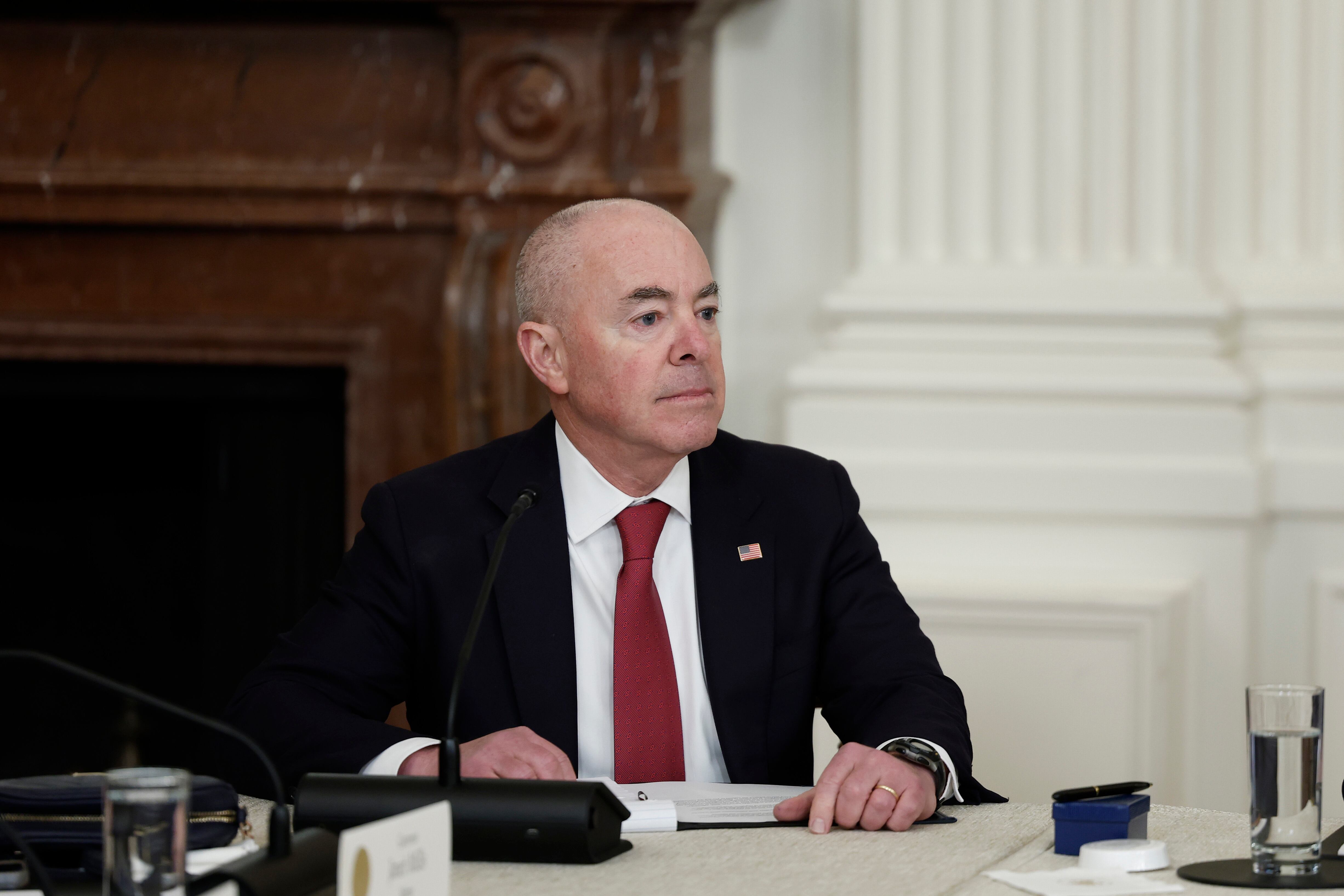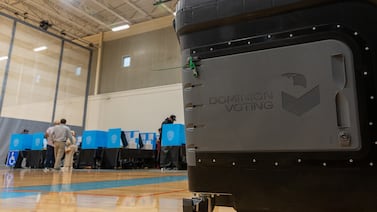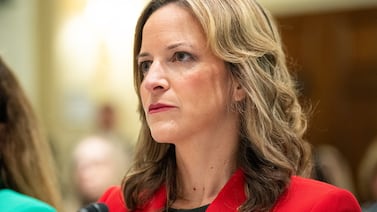Votebeat is a nonprofit news organization reporting on voting access and election administration across the U.S. A version of this post was originally distributed in Votebeat’s weekly newsletter.
Hi, y’all,
I can’t believe I’m writing this, but a federal agency has allocated money specifically for election security. I know, it seems fake even as I type it, but it happened. The U.S. Department of Homeland Security hands out more than $2 billion in “preparedness grants” to “enhance the capacity to prevent, respond to, and recover from various emergencies.” And this year, for the first time, states and cities who receive the money are required to spend 3 percent of it on “election security.”
It’s the first time elections have gotten a mandatory slice of this money, and it’s something advocates and election officials have asked for for a long time. And, crucially, it isn’t just stringless money: The spending is subject to the approval of the state’s chief elections officer, meaning that the governor can’t just take the money and say it’s being spent on elections while actually spending it on a pet project. Much of the funding will also be passed through to local officials, doing even more to ensure that this is actually spent on something that makes voting more secure.
This is, obviously, not a panacea for our problems. Sure, it’s tens of millions of dollars, more money than I will personally ever have in my life, but also not nearly enough: The nonpartisan Brennan Center for Justice at NYU Law estimates that it will cost $300 million over the next five years just to protect election workers from threats of physical violence. They say it will cost about $316 million for “basic election security measures.” Lawrence Norden, senior director of the elections and government program at the Brennan Center, called the tens of millions of dollars in new grant money a “huge step towards protecting elections and the people who keep them fair and free.”
“Still, much more must be done by all levels of government as the 2024 election approaches,” he added.
It’s sort of striking that elections have so far not been funded by this program. They were declared critical infrastructure in 2017, a designation that allowed the federal government to take far more interest and ownership in the security of elections. Still, as Rachel Orey of the Bipartisan Policy Center writes, federal funding is “irregular, unpredictable, and insufficient” and the new dollars, while welcome, are “but a drop in the bucket.”
In 2020, the preparedness grants came with a required 5 percent towards “enhancing cybersecurity,” and offered election security as an example of appropriate spending, but did not specifically require spending for elections. Voting wasn’t mentioned at all in any of the other preparedness grants, which DHS has been handing out for more than a decade.
The random funding disbursement is also part of a pretty damaging pattern the federal government has been stuck in since, well, forever: Elections have always been given bursts of money by the federal government without consideration for consistency or future planning. This makes it impossible for county governments to plan future purchases, keep their security up to date, or ensure that they can attract qualified staff and keep them in their jobs.
And, perhaps most glaringly (or at least made-for-TV), we know that autocratic foreign governments are eager to compromise our election security. DHS has told us that repeatedly and for years. It is perhaps the only active foreign entanglement we entrust counties to handle essentially on their own. If the Russian military comes for us, we have the full force of the U.S. military standing in between. If Russian hackers come for Southern Louisiana, let’s hope the Vermilion Parish elections office has two-factor authentication turned on.
This is a step in the right direction. It is, however, a tiny little baby step. Let’s hope that it is a sign of changing priorities.
Back Then
The year 2002 was a big one for the elections space: the Help America Vote Act passed (which created the Election Assistance Commission and authorized the largest-ever funding disbursement for election administration), and the Department of Homeland Security was elevated to a stand alone, cabinet-level agency. Of course, that second thing hasn’t been super relevant to elections until recently. DHS was founded the year before, less than a month after the September 11 attacks.
New From Votebeat
From Votebeat Arizona: Cochise County gives election skeptic recorder near full control of elections
From Votebeat Arizona: Investigation of Maricopa County’s Election Day problems costing up to $1,000 an hour
From Votebeat Michigan: After MSU shooting, election officials make emotional case to ban guns at polling places and drop boxes
From Votebeat Pennsylvania: Pennsylvania court offers conflicting opinions on requirements for fraud evidence in recount petitions
From Votebeat Texas: Two Harris County legislators want to let the state replace local election administrators
In Other Voting News
- The Thomas More Society, a conservative legal nonprofit long associated with cases aimed at restricting abortion access, has quietly moved into lawsuits and complaints aimed at questioning the integrity of elections, ProPublica reports.
- Nevada Secretary of State Cisco Aguilar is asking state lawmakers for $30 million to create a new statewide voter registration system that he said would enable the state to more seamlessly access to data in real time, KNTV Las Vegas reports.
- A Nebraska public hearing on voter ID legislation drew an overflow crowd and lasted for more than seven hours as lawmakers consider three bills that would take varying approaches, the Nebraska Examiner reports.
- New Arizona Attorney General Kris Mayes said she plans to use her “bully pulpit…to push back against legislation that would undermine voting rights” and said her decision to redirect a unit in her office from “election integrity” cases to protecting voter rights has so far brought no pushback. according to her interview with the Guardian.
- The Board of Supervisors in Northern California’s Shasta County has thrown the local election process into chaos, cancelling the county’s contract with Dominion Voting Systems and, at the urging of noted conspiracy theorist and MyPillow CEO Mike Lindell, moving ahead with consideration of counting votes by hand, the Los Angeles Times reports.
Jessica Huseman is Votebeat’s editorial director and is based in Dallas. Contact Jessica at jhuseman@votebeat.org.




